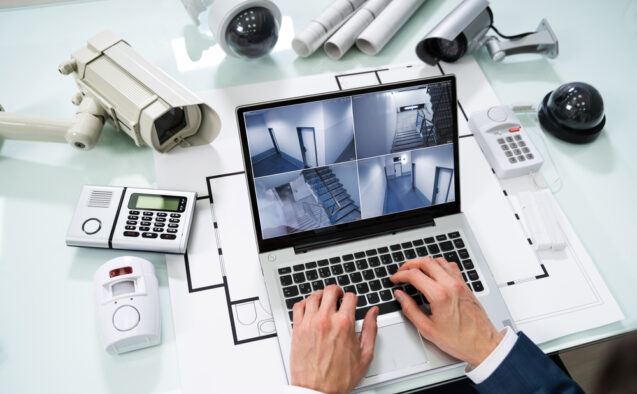Avoiding a False Sense of Security

by Mark L. Bossy, CHRP
As you sit at home having your morning coffee and reading the paper you can't help but read about the current crime statistics.
You think to yourself that you are secure in the feeling that your office is secure and poses no real risk to your business. You take a mental inventory.
You have secure locks and deadbolts on all outside doors. You have a monitored security system and good team members working for you. All seems secure but then you decide to take a second look.
As you arrive at work you look at your outside locks and notice that you failed to put latch protector plates on the doors to keep intruders from using a bar to pry the door open. The hinges are not secure because you did not use non-removable pins. All you would have to do is remove the pins in your hinges and you are in. You find the security system is off because the last person out the night before forgot to set it.
Surveying the office, you find client files scattered over team members' desks. You wonder what type of personal data an intruder would have access to and how much of this information is irreplaceable?
Next you notice that the windows can be easily broken without setting off the alarm. Your windows are not tied into the alarm system.
Looking closer, you see that a large number of your computers and other office equipment are right in front of the windows. All someone would have to do is smash the window, grab the computer, and run. This may take a whole 30 seconds to do and you know the response to an alarm will be longer than that.
What about vandalism? What if something simply gets thrown through the window. Shatter resistant or reinforced glass may not be a bad idea.
Upon your return from an early lunch, you are horrified at what you find.
Your team members have gone out for lunch. Your entire office is unattended. Computers, laptops, client files, and a variety of personal effects are left for the taking by any would be thief. Ail a thief or vandal needs is opportunity.
At reception you find the area unattended. You think that they must have gone to the restroom. Sitting on the counter is your petty cash box, some client cheques, and of all things, the receptionist's purse.
"Opportunity" you say to yourself. In other parts of the office you count 7 purses and 2 wallets in plain view. Again, opportunity arises.
In searching for some saving grace, you are confident that if a break in did occur you could readily identify what was taken: Oops! Wrong again. The team member initially made responsible for taking down serial numbers on pieces of office equipment and computers left a couple of years ago and the responsibility was not reassigned.
Well at least if someone or something happens to our client's files we have back up on our network computer.
You go to the network and see a system installed in a common area with all related software packages sitting directly beside it. This would be an ideal opportunity for a thief or vandal.
You now realize that you cannot take care of office security all alone. Despite the time you have spent on your tour, many questions remain unanswered.
Why does every team member require a key to the office? Can keys be, readily accounted for?
Should I have a logbook maintained to monitor company property being taken home by team members?
How good is my outside lighting?
Should reception have access to an internal panic button to alert other staff members that she is in trouble or needs assistance?
You assemble an office team who will do the following:
- Review, on a monthly basis, security procedures at the office and work on constantly improving them. This includes regular tours of the office to make recommendations.
- Take responsibility for inventory and key control, investigating Incidents, team member scheduling so the office is never left unattended, just to name a few things.
- Work with experts to look at your fire alarm and security monitoring systems and maybe in the future an in-house video system.
- Suggest ongoing improvements regarding security.
In looking back on your day you now see how security is not simply a locked door and an alarm system. Office security involves everyone on the team and will always be in a state of constant improvement.
Disclaimer: This article is intended for general information only and is not intended as legal opinion or advice. The views and opinions expressed do not reflect the official position of BNG Bossy Nagy Group or any other affiliate.
Back To News



